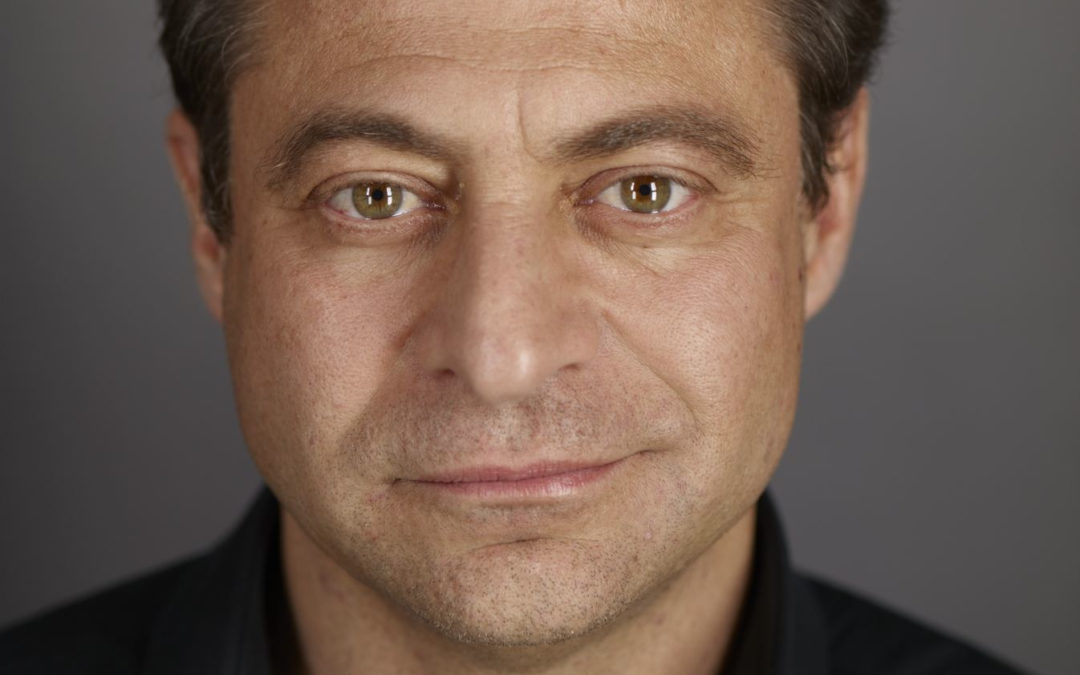
by Gary Mintchell | Apr 29, 2019 | Education, Leadership, Productivity, Workforce
There is an equally critical factor for success in companies: Teams that act as communities, integrating interests and putting aside differences to be individually and collectively obsessed with what’s good for the company. Research shows that when people feel like they are part of a supportive community at work, they are more engaged with their jobs and more productive.
Thus begins the book that you should read next. Trillion Dollar Coach: The Playbook from Silicon Valley’s Bill Campbell, by Eric Schmidt, Jonathan Rosenberg, and Alan Eagle. (The three authors were senior leaders at Google / Alphabet–and coached by Bill.)
Bill Campbell’s journey took him from head football coach at Columbia University, to the top sales and marketing job at Apple, to CEO of a couple of technology companies (Intuit and GO). Then he became a coach. He coached Steve Jobs at Apple. The three leaders and then many more at Google. And more than 80 other Silicon Valley CEOs and leaders. And his middle school football team that he coached at the same time.
He was most likely the most influential and respected man in Silicon Valley.
And his values and teaching are appropriate to all of us no matter the organization we’re with.
For example, he let everyone know his blocked time for coaching his football team of 13- and 14-year-olds. He wouldn’t answer his phone if you tried calling. One person, though, would ignore the time and call. Bill would pull his phone out of his pocket and look at the caller ID. The kids around him would look, also. They would see the name Steve Jobs, and then see Bill decline the call. They all knew that when Bill was with them, he was with them.
Read this book–and put the principles into practice in your life. You may not be building the next Google. But you can be the determining influence in someone’s life.

by Gary Mintchell | Feb 25, 2019 | Education, Leadership
A team developing a Web application named itself Curious George team. You know, the mischievous monkey who was adopted by The Man in the Yellow Hat. Curiosity defined its personality.
I thought, “How cool is that?” A constant reminder to work that particular muscle.
Ever notice little kids? Maybe from 1-1/2 to 4 or so? Take a walk with them. They are curious about everything. They’ll stop and study a leaf. Or a bug. Or a worm.
What about us? When we take a walk, do we puzzle over things we see?
What are you curious about? What would you like to learn?
What a great name for a team exploring new business ideas. Or expanded service ideas.
“I’m on the Curious George team. We’re always exploring for new ideas.”
That’s cool.

by Gary Mintchell | Jan 2, 2019 | Education, Productivity
You become what you think about. (Ancient Wisdom from many traditions.)
We begin a new year leaving behind a tumultuous one. If you were a news junkie, your mind must be close to mush.
I don’t recommend New Year’s Resolutions or any of a variety of goals.
Better is to review last year and decide what new or replaced habits will make me better as a human and contributor this year.
One I suggest if you have not already done it is to go on “news fasts.” Filter your news sources and pare them back. Check news like you would email–just a very few times a day.
Instead fill your mind with new learning and ancient wisdom. Always be learning. Always aware of opportunities coming toward you. Ready to act when opportune.
This way of life has changed me.
What will I learn this year? How will I contribute this year?
Here’s a wish for a good 2019 for you.

by Gary Mintchell | Oct 31, 2018 | Education, Podcast
I have unleashed another podcast–180 Asking Why.
Asking why? Continuous learning. Helping educate our children. Ideas for solving new problems and developing new business.
Not in the podcast, but in the realm of learning, change agents, asking why, I have been reading Beth Comstock’s book, Imagine It Forward: Courage, Creativity, and the Power of Change reflecting on her experiences at GE and NBC. Must read for all of you who are change agents.

by Gary Mintchell | Oct 25, 2018 | Commentary, Education, Leadership
Continuous learning is essential for economic survival in this increasingly technological world. However, I believe it is also essential for growth as a human. Sometimes we get so wrapped up in technology and organizational success that we forget that our first duty is to improve ourselves.
Drawing as Thinking
When you take notes or think about a project, what do you write? Do you use pen and paper? Or some sort of notes app or outliner on your computing device?
How about drawing mind maps or sketching ideas? On listening to a recent podcast I jotted this note
Drawing is not an artistic process; it is a thinking process.
Math as Thinking
Reading Peter Diamondis’s newsletter recently, he once again talked about how worthless math was in school—“I have never expanded a polynomial in my life.” I bet he used the logical thinking instilled by working math problems his entire life!
Wishing for Certainty
When I was young I knew old guys who had worked for the same company for many years. There was a certainty about life. I, on the other hand, have never really known that certainty. Here is a thought that once again draws out that idea of clear, logical thinking
The antidote to uncertainty is not certainty—which is impossible—but clarity.
It’s all about passion
Henry Cloud—The fruitfulness of our lives will come from our hearts. Developing our inner selves helps us prioritize our lives. Our hearts will determine the “issues” of our lives.
Resources
Your most important resources are time and energy.
Leadership
Andy Stanley—Leaders who don’t listen will eventually be surrounded by people who have nothing to say.

by Gary Mintchell | Oct 23, 2018 | Education
I had a problem in school–actually several. One was maturity. But then I grew up, finally. The big one was I was always asking why. Followed by its companion, “How do you know that is true?”
Rudyard Kipling had six honest serving men who taught him all he knew. I had two and forgot about the ones that the professors wanted–what, when, who, and where. A couple of professors taught thinking. Most asked for memorization.
I collect ideas about education. The Abundance Newsletter from Peter Diamondis should be on your reading list. He’s the X-Prize guy. He also thinks completely off the wall. You probably will only agree with half of his ideas, but the rest will change your life.
He was recently thinking about learning and compiled a list that is congruent with thoughts I have propounded for years. Try these on for size–and for practice:
For me it’s about passion, curiosity, imagination, critical thinking and grit.
-
Passion: You’d be amazed at how many people don’t have a mission in life… A calling… something to jolt them out of bed every morning. The most valuable resource for humanity is the persistent and passionate human mind, so creating a future of passionate kids is so very important. For my 7-year-old boys, I want to support them in finding their passion or purpose… something that is uniquely theirs. In the same way that the Apollo program and Star Trek drove my early love for all things space, and that passion drove me to learn and do.
-
Curiosity: Curiosity is something innate in kids, yet something lost by most adults during the course of their life. Why? In a world of Google, robots and AI, raising a kid that is constantly asking questions and running “what if” experiments can be extremely valuable. In an age of machine learning, massive data and a trillion sensors, it will be the quality of your questions that will be most important.
-
Imagination: Entrepreneurs and visionaries imagine the world (and the future) they want to live in, and then they create it. Kids happen to be some of the most imaginative humans around… it’s critical that they know how important and liberating imagination can be.
-
Critical Thinking: In a world flooded with often-conflicting ideas, baseless claims, misleading headlines, negative news and misinformation, learning the skill of critical thinking helps find the signal in the noise. This principle is perhaps the most difficult to teach kids.
-
Grit/Persistence: Grit is defined as “passion and perseverance in pursuit of long-term goals,” and it has recently been widely acknowledged as one of the most important predictors of and contributors to success.







